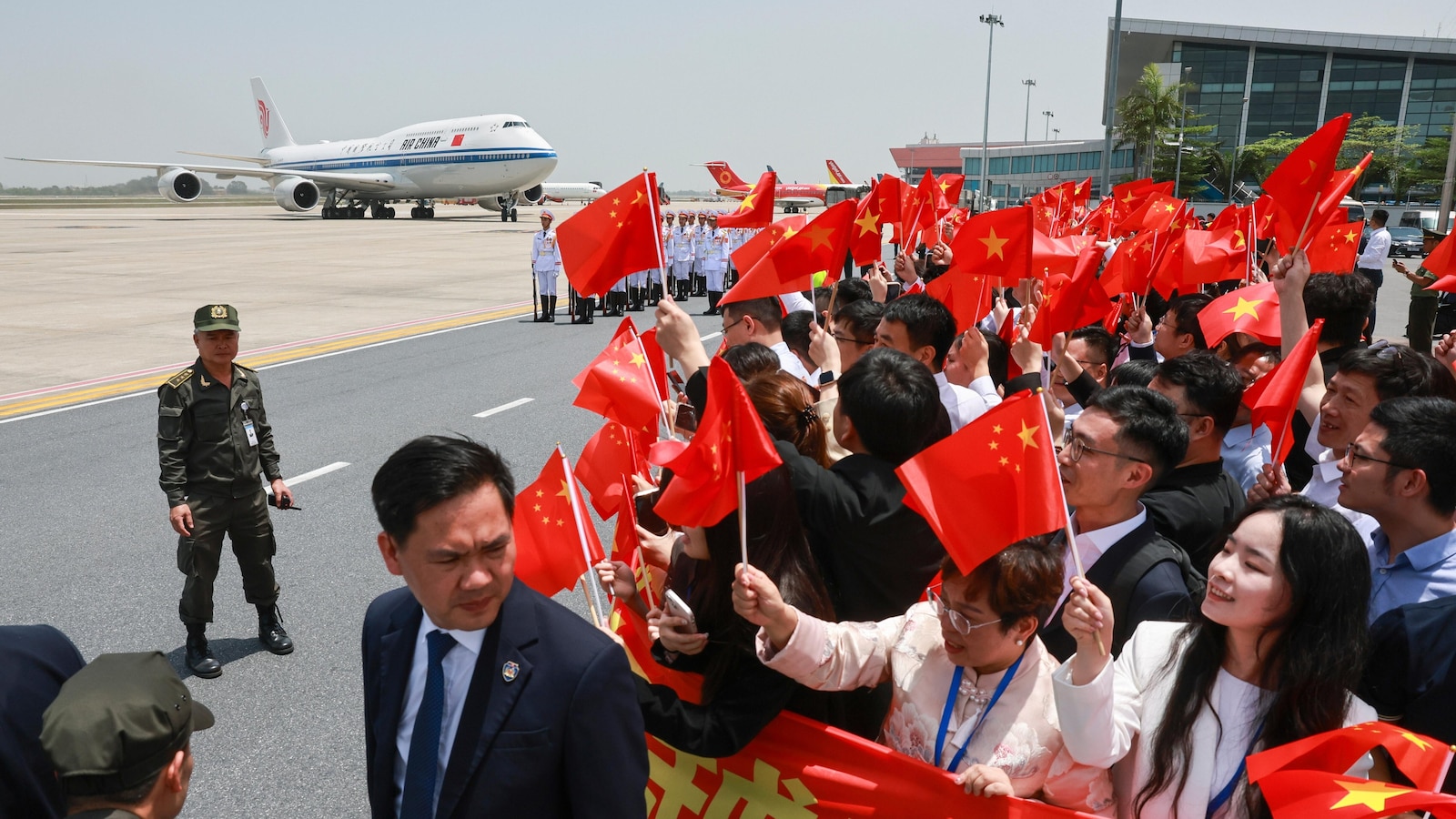HANOI, Vietnam — China’s leader Xi Jinping said no one wins in a trade war as he kicked off a diplomatic tour of Southeast Asia on Monday, reiterating China’s commitment to global trade in contrast with U.S. President Donald Trump’s latest tariffs moves.
Although Trump has paused some tariffs, he has kept in place 145% duties on China, the world’s second-largest economy.
“There are no winners in a trade war, or a tariff war,” Xi wrote in an editorial jointly published in Vietnamese and Chinese official media. “Our two countries should resolutely safeguard the multilateral trading system, stable global industrial and supply chains, and open and cooperative international environment.”
Xi’s visit lets China show Southeast Asia it is a “responsible superpower in the way that contrasts with the way the U.S. under President Donald Trump presents to the whole world,” said Nguyen Khac Giang, a visiting fellow at Singapore’s ISEAS–Yusof Ishak Institute.
Xi was greeted on the tarmac by Vietnam’s President Luong Cuong at the start of his two-day visit, a mark of honor not often given to visitors, said Nguyen Thanh Trung, a professor of Vietnamese studies at Fulbright University Vietnam. Students of a drum art group performed as women waved the red and yellow Chinese and Communist Party flags.
While Xi’s trip likely was planned earlier, it has become significant because of the tariff fight between China and the U.S. The visit offers a path for Beijing to shore up its alliances and find solutions for the high trade barrier that the U.S. has imposed on Chinese exports.
In Vietnam, Xi will meet with Vietnam’s Communist Party General Secretary To Lam, his counterpart, as well as the Prime Minister Pham Minh Chinh.
“The trip to Vietnam, Malaysia, and Cambodia is all about how China can really insulate itself against the from Trump,” said Nguyen Khac Giang, pointing out that since Xi became the president in 2013, he has only visited Vietnam twice.
The timing of the visit sends a “strong political message that Southeast Asia is important to China,” said Huong Le-Thu of the International Crisis Group think tank. She said that given the severity of Trump’s tariffs and despite the 90-day pause, Southeast Asian nations were anxious that the tariffs, if implemented, could complicate their development.
Vietnam is experienced at balancing its relations with the U.S and China. It is run under a communist, one-party system like China but has had a strong relationship with the U.S.
In 2023, it was the only country that received both U.S. President Joe Biden and China’s Xi Jinping. That year it also upgraded the U.S. to its highest diplomatic level, the same as China and Russia.
Vietnam was one of the biggest beneficiaries of countries trying to decouple their supply chains from China, as businesses moved here. China is its biggest trading partner, and China-Vietnam trade surged 14.6% year-on-year in 2024, according to Chinese state media.
But the intensification of the trade war has put Vietnam in a “very precarious situation” given the impression in the U.S. that Vietnam is serving as a backdoor for Chinese goods, said Giang, the analyst at Singapore’s ISEAS–Yusof Ishak Institute. Vietnam had been hit with 46% tariffs under Trump’s order before the 90-day pause.
China and Vietnam have real long-term differences, including territorial disputes in the South China Sea, where Vietnam has faced off with China’s coast guard but does not often publicize the confrontations.
After Vietnam, Xi is expected to go to Malaysia next and then Cambodia.
—-
Wu reported from Bangkok.

